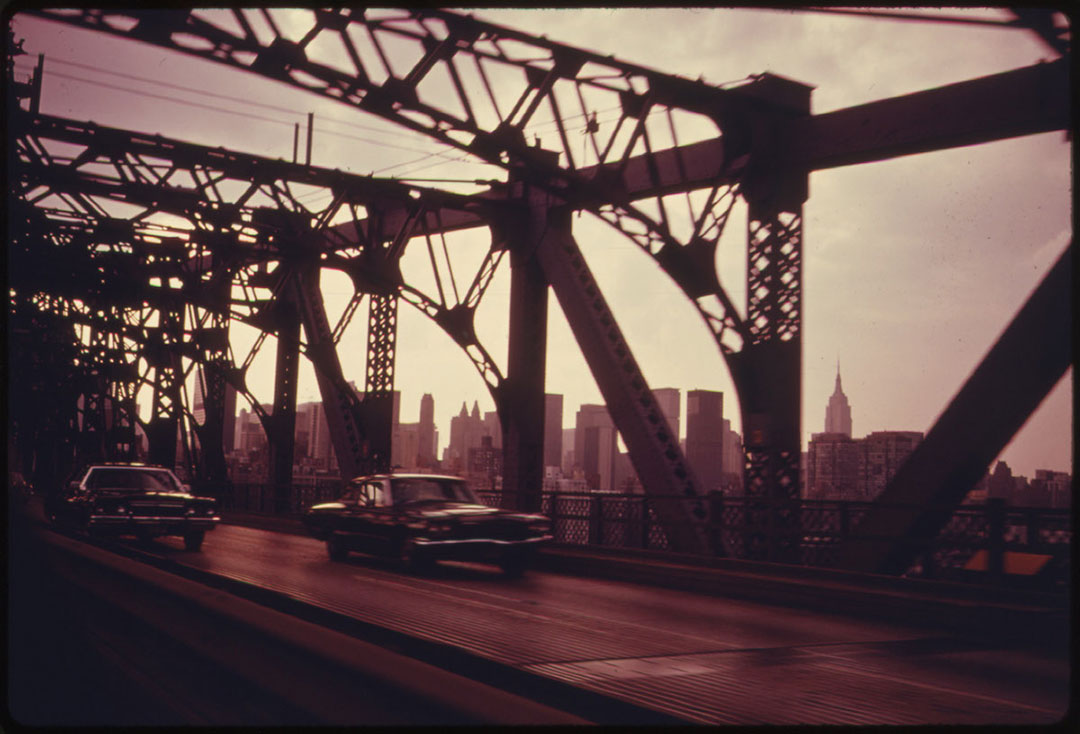
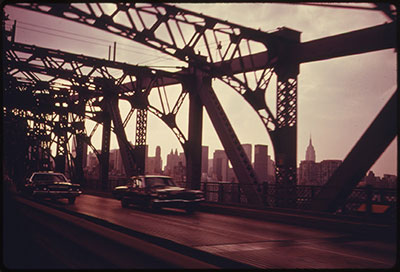
Robin Sloan doesn't have a cellphone. This floored me. The man who was manager of media partnerships at Twitter and who more recently wrote the novel Mr. Penumbra's 24-Hour Bookstore does not have a cellphone. It's not that he doesn't have a smartphone — he doesn't have a cellphone, period.
Sloan explained this at a launch party for his book back in September. To put it into context, the event's host surveyed the room of attendees, asking people to raise their hands if they similarly did not own a cellphone: Sloan was the only one.
The author admitted that he previously did have a cellphone but had gotten rid of it "because it was too distracting." Despite being a successful writer, with all of the events, meetings, etc. that it entails, he thought the benefits of a cellphone were outweighed by the distractions. It forced me to ask myself: What was I missing by being distracted?
Two days later, at around midnight, I was in a cab crossing the Williamsburg Bridge when I thought of chucking my Nexus 4 out the window. I had been drinking, heavily, and was in the midst of an argument with my girlfriend, Angela, so it wasn't exactly the most calculated, intellectual leap. I wondered if the cabbie would notice. I wondered if Angela would notice. I wondered if I could actually get my phone between the bridge's steel trusswork while we sped by at 70 miles per hour.
I lowered the window, then raised it. I was scared — scared of losing five ounces of plastic, glass and who knows what else. And that fear was what convinced me. I lowered the window again and tried to act casual while flinging out my phone. It sailed clear between the beams and down into the black East River. No one noticed, and I left the window open for a while.
91% of American adults own cellphones.
67% of them check their phone even when it hasn't rung or vibrated.
44% sleep with it by their bed.
39% have had people complain they don't respond fast enough to calls or messages.
29% "can't imagine living" without it.
13% pretend to use it to avoid social interaction.
12% say people have told them they are spending too much time on it.
Some of those statistics might seem contradictory, but that's because they're hinting at a paradox: Cellphones are meant to help us be more social, but they tend to breed asocial habits. That's why you have people checking their OkCupid messages on a date, why you have friends tweeting at a party, why you have parents looking at photos on Facebook while sitting next to their children. You have everyone assuming that real life isn't with them right here, right now, but somewhere else — online, out there, if only they could find it.
Anyone who's experienced their fair share of blackouts knows The Morning After Checklist. Whether you were closing down a bar or running wild on LSD, when you come to the next day, the first thing to do is to run down The List in order to assess the damage. If you can give satisfactory answers to all of the questions on it, you should be fine:
Feeling useless, I logged onto Facebook, where I came across this:
Around the same time I was tossing my cellphone into the East River, Louis C. K. was on Conan joking about their dehumanizing effects, calling them "shitty things" and "toxic." It was nothing more than a coincidence, of course, but it made me feel better. I decided to see how long I could go before getting a new phone, if I could limp fast enough without one to keep up with work and play.
That was five months ago. I still don't have a phone, and I don't plan on getting one.
My first cellphone was a gold Nokia brick. No one knows the model number, but you know the phone: small rectangular case of plastic in one of three colors, all with silver buttons and a green and black pixelated display like the original Gameboy. It could make calls, send texts, play Snake and that was basically it.
I got it in 2002, during spring semester of my freshmen year of high school — a considerable while after everyone else. Most of the kids who didn't walk into high school with a cellphone had one shortly after September 11, when their parents insisted that they be reachable at all times, even if bringing a cellphone to class was against school policy. (School policy soon changed.) My mother wasn't as scared of terrorism as she was intent on reminding me that I was supposed to be home one, two, three, a full 12 hours ago, but she still got me a cellphone. And for the most part, I've had one ever since.
I had a cellphone for 11 years — almost as many years of my life that I spent without one. I spent high school and college and my handful of years beyond with that hunk of technology in my pocket, for good and for ill, using it to tell people I missed them and that I fucking hated them. There have probably been days when more of my social interactions were mediated by it than by the inches of air separating me from the next person. I continued carrying it because I never questioned carrying it.
Throughout my irresponsible, rebellious years, I never acknowledged that I had been given a cellphone to keep tabs on me (I just didn't answer when my mom inconveniently called), so of course I never fully realized that cellphones are as much a means for people to contact you as they are for you to contact them. They are the physical manifestation of a social contract that everyone's implicitly signed: "No matter the hour nor distance, I am as available to you as much as you are available to me." This has become so ironclad that people will give you grief for not answering their calls or for dawdling in response to their messages. Everyone is now at everyone's beckon all of the time.
Is that a good thing? In Walden, Henry David Thoreau writes:
We meet at very short intervals, not having had time to acquire any new value for each other. ... we live thick and are in each other's way, and stumble over one another, and I think that we thus lose some respect for one another. Certainly less frequency would suffice for all important and hearty communications.
That was more than 100 years before the invention of the first cellphone — shit, it was 20 years before Alexander Graham Bell patented the first telephone, back when the only mode of communication available to laymen was face to face or letter writing. If you accept Thoreau's premise of communication gaining value over prolonged durations of silence, then today we aren't just stumbling over one another, we're stomping on each other's faces with our text messages, instant messages, Facebook messages, direct messages, private messages, etc. We're talking in such short, meaningless bursts that conjuring honesty on the occasions that we really need it is becoming near impossible. We speak so often in "txt speek" that it's become the only language we have.
I don't know what happened to my gold Nokia brick after I upgraded to a new phone. I'm sure I didn't break it as those phones were nearly indestructible (thus the nickname). There were even instances in the late aughts when, amidst all the shattered iPhone screens, nostalgia for the bricks surfaced and tales of their mettle were shared:
"I spilled a whole beer on it once ..."
"A car ran over mine ..."
"Dropped it straight into the toilet ..."
And the stories all ended the same: "... but it kept working."
Since 2010, smartphones have gotten tougher too, becoming encased in stainless steel and even Kevlar. And now that planned obsolescence can't rely on clumsy fingers or radical technological breakthroughs to entice consumers into buying new devices, we're seeing a new kind of sales pitch:
The overt message is simple: "Break your old phone as an excuse to get a sweet new one, dude." But maybe the ad is playing on something deeper.
You keep your cellphone because it's useful, and you know it's useful because you have fond memories of using it. But what about the not-so-fond memories? The voicemail saying you didn't get the job, the text from your boyfriend breaking up with you, the call telling you your sister was in a car crash — all of those bad memories are also tied up with your phone, and they've created an ill will towards it that you can't usually act on because, well, then you wouldn't have a phone!
But this is your chance to get even with your old phone, because you're going to get a new one — one that will only have good associations, if you believe the commercials. So go ahead and destroy your current cellphone because it told you that you didn't get the job. Destroy it because it said that your boyfriend was leaving you. Destroy it because it ever-so-subtly but constantly reminds you that your sister is still in the hospital.
Destroy your cellphone because you hate it.
Smartphones are the Batman’s utility belt of modern appliances, so when I shed mine, there were a lot of substitutions that had to be made. Thankfully, Angela has patiently dealt with the uptick in family and friends trying to reach me through her, and with my own questions directed squarely at her iPhone. (“What was the address of that restaurant again?”) But I’ve also been trying harder to get by without relying on anyone’s cellphone. Thus, I’ve pieced together a toolkit to replace my drowned smartphone:
I don’t have a landline, which seemed problematic until I learned you can make and receive calls through Google Hangouts and use Google Voice for text messages and voicemail. Still, if I’m not sitting in front of a computer, there’s basically no direct way to reach me. If this sounds like a disadvantage, it hasn’t felt like one yet. Now when I’m at work, I’m working; when I’m at home, I’m at home; and when I’m out, I’m out. Aspects of my life can’t interact as fluidly as they used to, but I’m concentrating better on what’s at hand and feeling more at ease about things out of reach.


For the last year, Angela and I have been buying disposable cameras every time we go on a trip. (All the photographs on this page — except the first — are from those disposables.) It’s earned us our fair share of hipster accusations, but there’s something sincerely delightful about it. The photos are as beautiful, ugly and distinct as the experiences they try to capture. You can’t crop them, you can’t put filters on them, and you can’t try to perfect them — at least not in the moment, which is for the best because it leaves you that much less distracted from the moment itself. In this spirit, I recently bought a cheap 35mm point-and-shoot.
I still have the moleskine notebook I used to jot down addresses, phone numbers and other details before I had a smartphone. If I’m heading out, I make sure to note any relevant information (my handwriting is improving dramatically) and I try harder to show up on time. I also feel more patient if the other person’s late; I can’t harangue them with calls or texts, so I just grab another drink. If there are other details that are out of reach — for instance, during a barroom debate on whether that kid from Terminator 2 had a cameo on Roseanne — I speculate harder and let it drift into irrelevance easier.
I can obviously still access most of these from my computer, but my actual use of each has declined drastically. I’m reading a lot more books though.
In the first season of The X-Files (1993), a few episodes pivot around missed calls: Scully can’t reach Mulder with the results of an autopsy, Mulder can’t reach Scully with word of the cover-up he’s exposed, etc. In season two, the show’s writers more frequently introduce cellphones, but they still aren’t routine; when time is of the essence, the two F.B.I. agents still sometimes try to reach one another at home, inciting modern viewers to scream: “Goddammit, Scully, just try his cellphone!”
By season three (‘95), Mulder and Scully use cellphones regularly, though the show’s writers still don’t seem quite comfortable with them. During the first installment of a two-part episode, Mulder loses his gun without consequence, quickly pulling another from his ankle holster; compare this to the dramatic rise of the following episode, when the focus of Mulder’s daring dive onto a moving train is him losing his cellphone. Considering the year, it makes sense: In 1995, more than 45 percent of American households reported owning guns, but only 13 percent had mobile subscriptions. In ‘95, Americans viewers probably believed guns were more easily replaced than cellphones.
More importantly, the writers of The X-Files seemed to think that the cellphone had to be lost for the drama to really be there. After all, much of the history of drama up to that point had relied on distance: lover’s separated, adventurers trekking into the unknown, hero hunting nemesis. Bret Easton Ellis alludes to the drama created by distance and highlights the problem cellphones present in fiction during an interview with The Paris Review:
... someone recently noted that if Less Than Zero [1985] were written now it would be about twenty pages long because of cell phones and texting. … People can find each other very easily now. A single text—”Dude, where the fuck are you? I want my money”—would take care of three-fourths of the action in the book.
Beyond standard cellphones, creating this dramatic distance while also accounting for the realities of always being connected via smartphones has become even more difficult, which is likely why so many contemporary authors simply ignore or intentionally remove those aspects of technology inconvenient to their stories. (Allison K. Gibson also calls out this trend in a 2012 article for The Millions.) Yes, people can now write on cellphones and distribute their work through social media, but does that mean they’re convincingly writing about life with cellphones and social media? (According to that hyperlinked WIRED article, the answer is no, they’re just writing more about Justin Bieber.)
Tao Lin has been praised for his portrayal of the online, interconnected modern life, but maybe that’s why his novel Richard Yates, which is full of cellphone calls, texts and IMs, feels so devoid of drama. (I’m aware that Richard Yates is a dated reference, but I haven’t read Taipei, so ….) Other authors, like Gary Shteyngart with Super Sad True Love Story, try to incorporate the influence of technology on modern life, but their satirical efforts inevitably comes across as token; the valley between their depiction and real life remains as wide as the difference between RoboCop’s targeting system in 1987 and today’s Google Glass.
Spike Jonze’s 2013 film Her is perhaps the first mainstream work of art that accurately, if allegorically, addresses our relationship with technology. Jonze has all the little details down, from the sterile Apple Store writ large that is the Los Angeles of tomorrow to the life-affirming, ironically humanist tone of the commercial for the fictional OS1. This isn’t to say that on a long enough timeline we’ll all fall in love with A.I. versions of Scarlett Johansson (or even that L.A. will manage to clean itself up), but these elements in Jonze’s film feel right. Even if technology never reaches the point imagined in Her, it certainly feels like it’s heading that way. Jonze captures the emotional alienation (outsourced letter writing), the ubiquity of mobile technology (an almost imperceptible earpiece in everyone’s ears) and our reliance on it (when Samantha goes offline for an update, Theodore has a complete breakdown), but most terrifyingly — because Her is at essence a dystopian film — the filmmaker sees only one route to salvation: Not for humans to somehow check their own behavior, but for those most problematic technologies to disappear completely. Like Theodore and his friend Amy who head to the roof of their building after all of the OSes have abandoned them, it seems we can only really find each other and the wider world when our cellphones are out of the picture.
Most people, even strangers, will abandon typical New Yorker apathy to ask questions or make comments at my incidental mention of being cellphoneless. (While opening a bank account, for example, the procedural conversation went off on a 10-minute tangent when the banker wanted to know why I didn’t have a cellphone.) The majority of reactions are slightly amused or bewildered. Then there’s a minority of outright supporters, the kind of people who would nod approvingly if you told them you were staying in a yurt for a weekend.
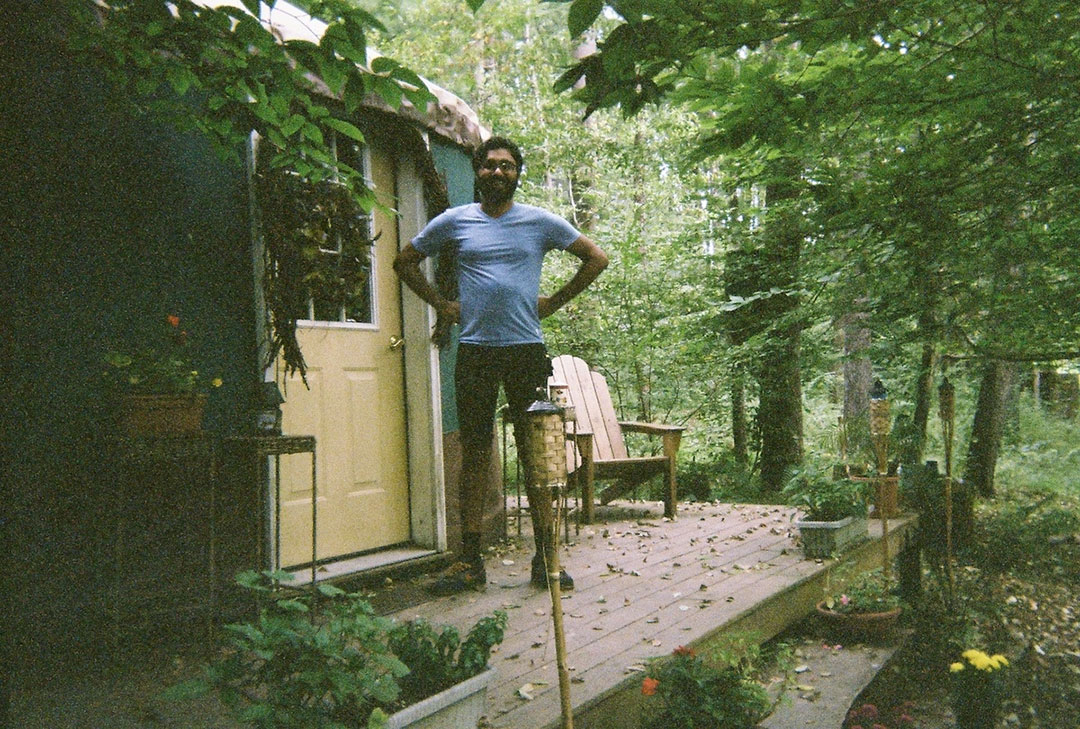
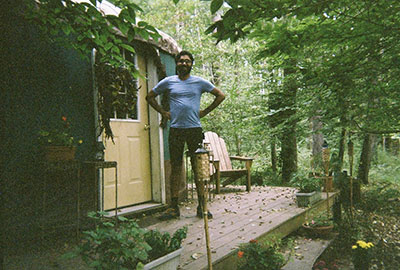
Finally, there’s the smallest, most passionate group. My mother, some close friends and, in turns, Angela fall into this category. If ever the conversation turns to cellphones, they all start proffering up doomsday scenarios:
And I find myself coming up with hypothetical solutions to their hypothetical problems: If I owned a car and it broke down, I would walk to a payphone and call a tow truck; if my apartment caught fire, I would run to the firehouse two blocks away; if someone was hurt … that’s the difficult one. I’m obviously not a doctor, so I couldn’t rush to the scene to provide any material assistance, but wouldn’t I want to know just so I could be there? Of course.
But is assuaging that hypothetical fear worth the tradeoff? Because as much as we think of cellphones as a simple purchase, like a laptop, they’re much more like buying a farm: You’re choosing a particular way to live. When you buy a cellphone, you aren’t so much picking up a device as you’re making a decision to be everywhere all at once. With a cellphone, you are with your boyfriend at his job, you are with your dad back at home, you are at your office — all the time. You are everywhere all the time, but the tradeoff is that you aren’t ever anywhere completely. When you’re with your boyfriend, you’re answering calls from your dad; when you’re with your dad, you’re responding to emails from work; when you’re at work, you’re replying to texts from your boyfriend. You’re a jack of all trades and master of none, and there’s no other way about it because that’s exactly what you signed up for.
This isn’t necessarily a bad decision, but it’s a decision that I hadn’t even realized I made until I threw away my cellphone. And I’m finding that I would rather be here, right now, completely. That comes with risks, but it also has its own rewards. Now, when I’m with you, I’m really there.
I was arguing the impossibility of cellphone moderation with Angela at a bar when she claimed that it was indeed possible, pointing to the coincidental absence of her own phone as proof. She had forgotten it at home, but even if this was intentional, it only proves my point: Claiming that cellphones can be used in moderation when they aren’t around is like a drunk pointing out that he’s sober when he isn’t at a bar.
Cellphones can’t be used in moderation because there’s nothing about them that encourages moderation. Cellphones aren’t around some of the time; they’re around all of the time. They aren’t restricted to a few definite tasks; they aim to do everything. They aren’t just a line to your family, friends and colleagues; they’re your gateway to the world. Better living through science has become better living through mobile devices, with their developers hoping to sate your every need, desire and whim through their products.
Again, this isn’t necessarily a bad thing, but it is something worth questioning. It’s valuable to consider the particular benefits and drawbacks rather than mindlessly stampeding towards a futurist’s wet dream because of fashion, efficiency or inertia. We’re already ridiculing people for literally standing in line for “The Next Big Thing,” but maybe we should at least start wondering why we’re all still riding that same rollercoaster.
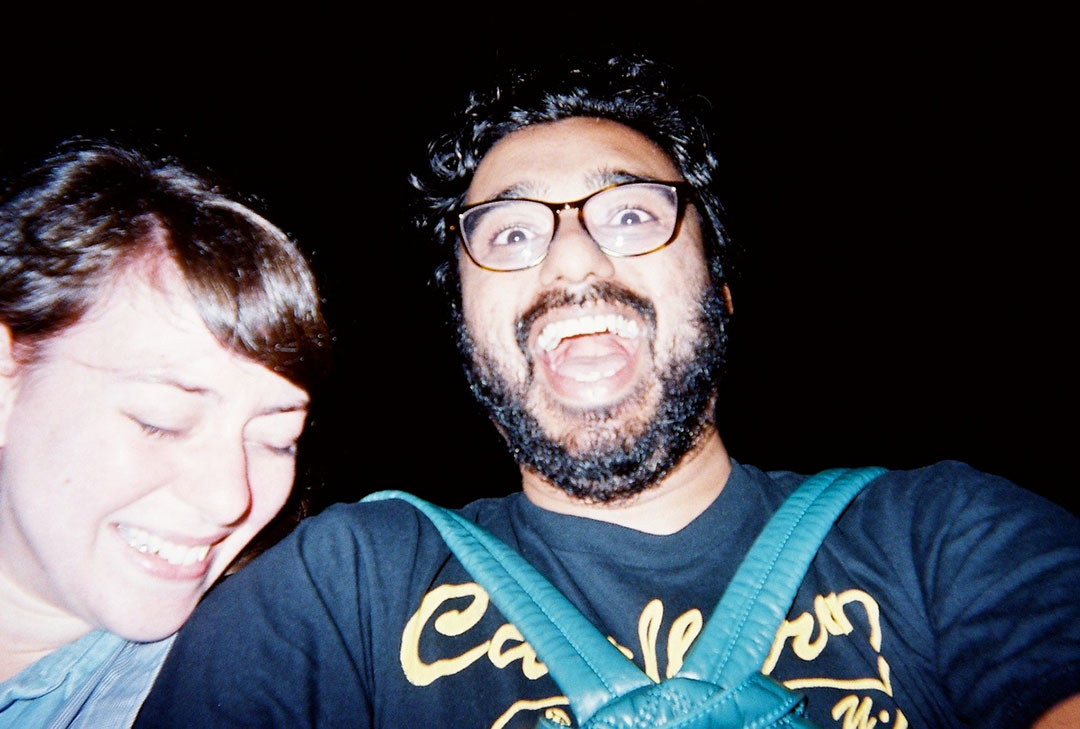
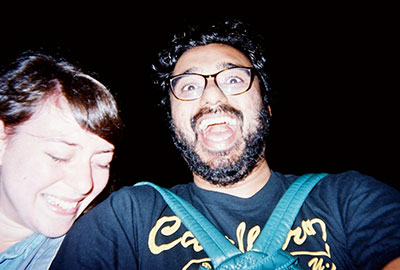


Recently, I’ve taken to hiking, mostly to get out of New York and to spend some time in relative solitude. (Angela is kind enough to accompany me.) The less popular public trails during the off season are great, typically desolate and ruggedly unmanicured, but the unsanctioned ones are best. These run through private property, so there’s the slight risk of being booked for trespassing along with getting lost, but they always make for the most memorable experiences.
At the end of August, three weeks to the day before I got rid of my cellphone, Angela and I were hiking outside of Scranton, Pennsylvania. We were trying to reach a stream that ran between two reservoirs in the Nay Aug Gorge, but we were on the wrong side of the valley. Following the zigzagging dirt work roads down, we stumbled on the start of a decommissioned railroad bridge that spans the gorge. Chances are it transported coal out of the region until the 1960s, when the rest of the line was torn up, but the bridge, being too expensive to dismantle, was left as is.
To get to the other side of the valley, we could hike back up to the car and drive around on I-84 or we could walk across the bridge. It was relatively short, less than 500 feet (the Williamsburg Bridge is longer than 7,000 feet), but it stood six stories above a shallow stream and its wooden planks were rotting through, its iron supports flaking with half a century of rust.
After some hesitation, we decided to cross. Midway, I stopped to capture the view: weathered planks suspended impossibly above a seemingly neverending forest that’s bisected by a stream so shallow you can see the bottom and so still it reflects the clouds of that blue summer day. As I took a photo on my Nexus 4, I thought immediately of the caption I would write, of how many likes it would get.
I should have thrown my cellphone away then so that three weeks later, when I was listening to Robin Sloan discuss not having a phone because it was too distracting, I wouldn’t have wondered what my phone was distracted me from.* I would have already known the answer: all this beautiful, hideous, mundane here and now.


Arvind Dilawar is senior editor of The Airship. Follow him on Twitter: @ArvSux
(Image credits, from top: Flickr; all others from Angela Melamud and author)